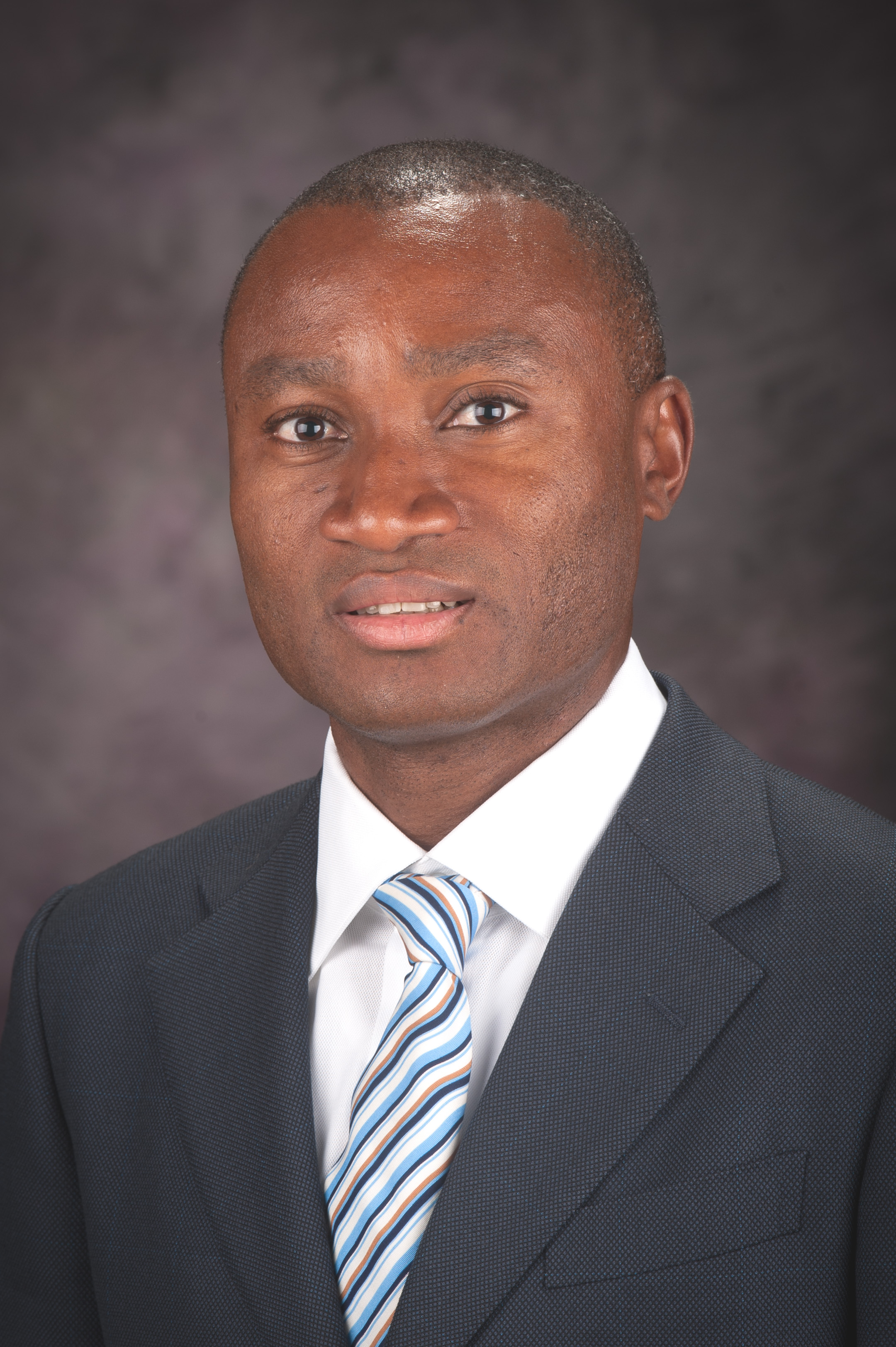Urban air quality, ozone control focus of university's latest NSF CAREER award winner
Tuesday, Feb. 14, 2017
MANHATTAN — An assistant professor of chemical engineering at Kansas State University is being recognized by the National Science Foundation for his career potential.
Placidus Amama has been awarded a $520,000 grant from the NSF's Faculty Early Career Development, or CAREER, Program for his project, "Rational Design of Efficient Carbon Nanotube-Supported Titanium Dioxide Photocatalysts for Air Purification." This study focuses on the coupling of carbon nanotubes and titanium dioxide, with the goal of enabling production of low-cost and large-area coatings of this material for efficient outdoor pollution control.
The NSF's CAREER Program is one of its most prestigious awards for supporting early career faculty who effectively integrate research and education within the context of their institution's mission. Faculty recognition and awards are an important part of Kansas State University's plan to become a Top 50 public research university by 2025.
"This technology is expected to provide significant improvement in urban air quality and combat ozone at the source," Amama said. "The work is a novel means for maximizing charge-separation efficiency of titanium dioxide and extending its photoresponse to the visible-light region, enabling outdoor application of the titanium dioxide photocatalyst."
Amama's project will take advantage of the presence of semi-infinite states in the conduction band of carbon nanotubes, with the possibility of transferring electrons between them and titanium dioxide to tailor the function of a carbon nanotube-titanium dioxide heterojunction.
"I am pleased and proud of Professor Amama's research funding efforts," said James Edgar, department head and university distinguished professor of chemical engineering at Kansas State University. "To have his important work in this area recognized and supported by the National Science Foundation speaks highly of not only Placidus' work, but our entire program."
The work will build on Amama's recent research involving scalable and efficient carbon nanotube growth using a gaseous waste mixture from Fischer-Tropsch synthesis, and substantial prior work on rational catalyst design for controlled carbon nanotube growth.
As an educational component, the project will impact nanotechnology education at Kansas State University through development and modification of curricula, and by broadening the scope of students' research experience through an international exchange program.
"The proposed project will equip K-State engineering students with the needed skill set for innovative and successful careers in nanotechnology," Amama said. "The international exchange and collaboration with the Air Force Research Laboratory will benefit both research and education here."

